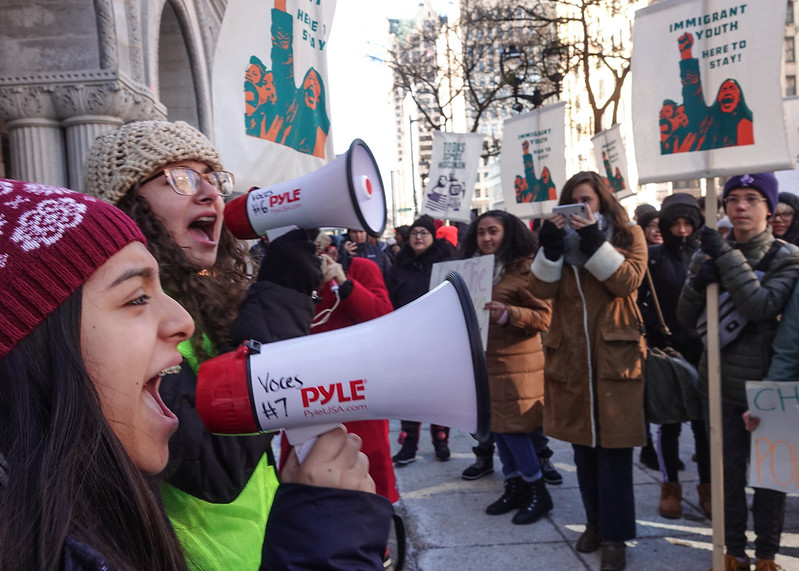Debates over DACA continue
November 26, 2019
DACA, also known as Deferred Action for Childhood Arrivals, has been a major help for children of undocumented immigrants since it was put into place in the summer of 2012, having 825,000 people approved for DACA as of June 2019 according to American Progress.
The program allows those brought into the country unlawfully as children to be safe from deportation and get a work permit for two years which can be renewed after the two years are up. The program has received both praise and controversy since it has been put in place, praising the path to citizenship it opens but criticizing the act for encouraging more illegal immigration and offering amnesty to those who have broken the law.
Yet despite the heavy controversy and debates over DACA that have been present in the 7 years since DACA was put in place, the program has stayed. However, there could soon be an end to DACA.
The potential end of DACA first became a possibility in September of 2017, when the Trump administration announced their plans to remove the program, yet gave Congress six months in order for them to pass the DREAM act, which would grant residency to immigrants who entered as minors, or a similar protection for those under DACA. Sadly, Congress did not reach a decision by the deadline of March. However, several federal courts have put a hold on the removal of DACA, still protecting those under the program but not allowing new applicants.
In the time since then, the future of DACA faced more uncertainty, with ten states even suing to end the program and a federal court in Texas ruling the program ‘unlawful’ but still allowed the program to remain unless Congress says otherwise, according to NPR.
Public opinion has also been split on what Congress will decide with the program, with people on both sides of the debate having split opinions on whether Congress will vote to keep DACA or end the program. And as these events unfolded, DACA was overshadowed by other recent news.
On November 11th, a courtroom which held the Supreme Court and several members of DACA engaged in a debate that went on for an hour and a half, with the consensus of the justices leaning towards ultimately the removal of the program, gauging controversy from DACA supporters and immigrants protected by DACA.
With both the Executive branch and the highest of the Judicial branch showing support for ending the program, if the Legislative rules in the spring of 2020 to side with the opinions of their fellow branches, it would no doubt end this program for good and confirm the worst fears of over 800,000 people.
And with the wins against them, supporters are encouraging recipients to renew their DACA now to continue to have their protections in the event of the highly likely future that one year from now, DACA will be gone.
But how will this affect West students? According to American Immigration Council, 45,663 people in Illinois are immigrants under DACA, with around 2,000 of those being those of high school age. And if DACA is removed by Congress, in 2021, several of those people-who could be your friends, your coworkers, your neighbors, your teammates-will be at risk of deportation.

